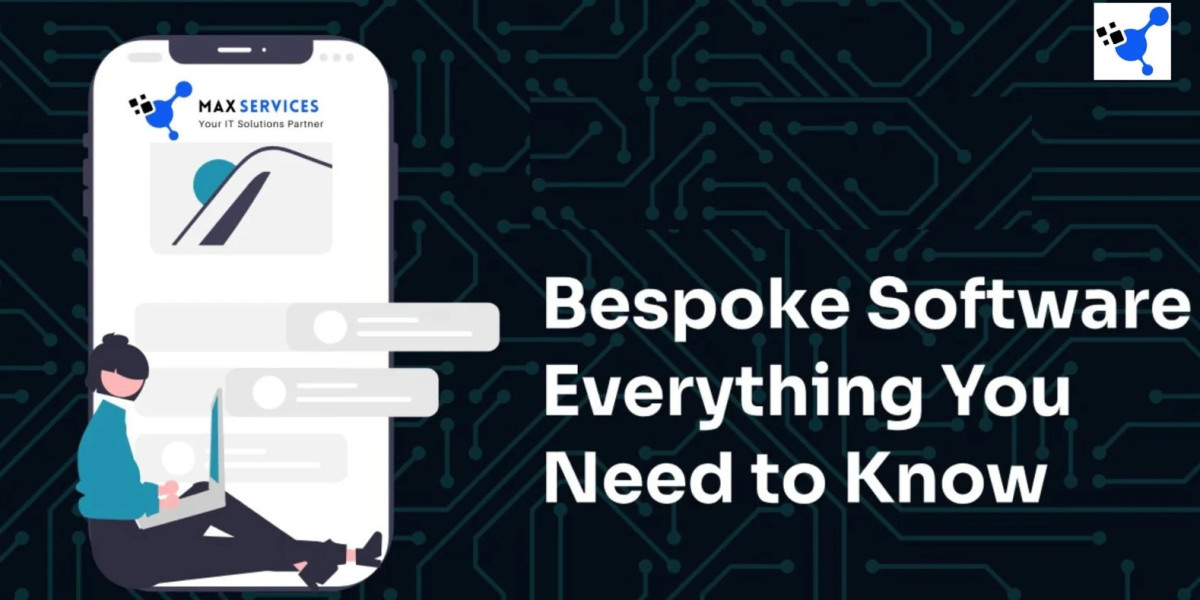Understanding Bespoke Software Solutions
Before delving into the latest advancements, it's essential to define bespoke software solutions. Unlike generic, off-the-shelf software designed for mass-market use, bespoke solutions are custom-built to meet the specific needs of a business or organization. These tailored applications offer unmatched flexibility, scalability, and seamless integration, providing superior functionality compared to standard software products.
In 2024, the need for bespoke software has never been greater. Businesses striving to maintain a competitive edge, enhance operational efficiency, and quickly adapt to evolving digital demands are increasingly turning to custom software solutions. These tailored applications offer optimized performance, enhanced security, and an improved user experience.
Key Trends and Innovations in Bespoke Software Solutions for 2024
1. AI and Machine Learning Integration
Artificial intelligence (AI) and machine learning (ML) are now fundamental components of bespoke software development. These technologies are being embedded into custom solutions to automate tasks, analyze extensive data sets, predict trends, and enhance decision-making.
AI-powered bespoke software enables businesses to anticipate customer behavior, optimize inventory management, and improve customer service through intelligent chatbots. Machine learning algorithms continuously evolve, ensuring that software solutions become smarter and more effective over time. Industries such as healthcare, finance, e-commerce, and logistics are leveraging AI and ML to develop adaptive, intelligent applications.
2. Cloud-Native Development
Cloud computing continues to revolutionize bespoke software development, with a shift towards cloud-native applications in 2024. Cloud-native solutions are designed to maximize cloud infrastructure benefits, offering unparalleled scalability, flexibility, and resilience.
These solutions allow businesses to scale applications effortlessly, access real-time data from any location, and integrate new features without disrupting operations. Cloud platforms such as AWS, Microsoft Azure, and Google Cloud are playing a crucial role in enabling businesses to build cost-effective, high-performance bespoke applications.
3. Rise of Low-Code and No-Code Platforms
The adoption of low-code and no-code development platforms is making bespoke software more accessible. These platforms empower businesses to develop custom applications with minimal coding expertise, using intuitive drag-and-drop interfaces and pre-built modules.
In 2024, these platforms are becoming increasingly sophisticated, supporting complex workflows, advanced integrations, and greater customization. AI-powered low-code tools further enhance their capabilities, making software development faster and more efficient. Small businesses and internal departments within larger enterprises are leveraging these platforms to deploy tailored solutions quickly.
4. Enhanced Cybersecurity Measures
With cyber threats evolving, security remains a top priority for bespoke software solutions. Custom-built applications offer businesses greater control over security protocols, ensuring robust protection against potential threats.
In 2024, development teams are integrating advanced encryption, multi-factor authentication, and AI-driven security monitoring tools. Proactive security measures such as secure coding practices, regular vulnerability assessments, and real-time threat detection are critical in safeguarding sensitive data and ensuring compliance with industry regulations.
5. Blockchain Technology for Enhanced Security and Transparency
Originally popularized by cryptocurrencies, blockchain technology is now being widely adopted in bespoke software development. Its decentralized, secure, and transparent nature makes it an ideal solution for industries requiring high data integrity and trust.
Businesses are utilizing blockchain for secure digital contracts, supply chain tracking, and fraud prevention. As the technology matures, its applications in bespoke software development are expanding, particularly in finance, healthcare, and logistics, where security and transparency are paramount.
6. Microservices Architecture
Microservices architecture remains a dominant trend in bespoke software development. This approach involves breaking down applications into smaller, independent services, allowing for enhanced flexibility, scalability, and easier maintenance.
By implementing microservices, businesses can update and expand software without overhauling entire systems. This modular approach improves system performance, accelerates deployment cycles, and facilitates seamless third-party integrations. In 2024, more companies are embracing microservices to develop agile and resilient custom applications.
7. Agile and DevOps for Faster, More Efficient Development
Agile methodologies and DevOps practices continue to shape bespoke software development. Agile emphasizes iterative development and continuous feedback, while DevOps fosters collaboration between development and operations teams.
These methodologies enable businesses to rapidly deploy new features, address issues promptly, and adapt to changing market conditions. Companies adopting Agile and DevOps benefit from improved efficiency, faster time-to-market, and software solutions that stay aligned with evolving business needs.
8. Edge Computing for Real-Time Processing
Edge computing is gaining traction, particularly in applications that require real-time data processing and minimal latency. By processing data closer to its source rather than relying on centralized cloud infrastructure, edge computing enhances efficiency and responsiveness.
Industries such as healthcare, manufacturing, and autonomous vehicles are leveraging edge computing for instantaneous data analysis. Bespoke software solutions incorporating edge computing enable businesses to make faster decisions, reduce reliance on cloud infrastructure, and enhance operational efficiency.
9. Focus on User Experience (UX) and Design Thinking
User experience (UX) is a critical factor in bespoke software development. In 2024, there is a heightened focus on creating intuitive, user-friendly applications that align with end-user needs.
Design thinking, which prioritizes empathy, collaboration, and iterative problem-solving, is becoming a fundamental aspect of bespoke software development. By understanding user pain points, development teams can create software that enhances usability, increases adoption rates, and improves overall customer satisfaction.
Conclusion
Bespoke software solutions are at the forefront of digital transformation, providing businesses with tailored applications that align with their unique objectives. The integration of AI, cloud computing, cybersecurity, and blockchain is driving innovation, while methodologies like Agile, DevOps, and design thinking enhance development efficiency and responsiveness.
As businesses continue to seek personalized, scalable, and secure software solutions, bespoke development remains a crucial enabler of success. The advancements in technology and the growing demand for customized applications ensure a promising future for bespoke software development in 2024 and beyond, offering limitless possibilities for businesses to thrive in an increasingly dynamic digital landscape.








